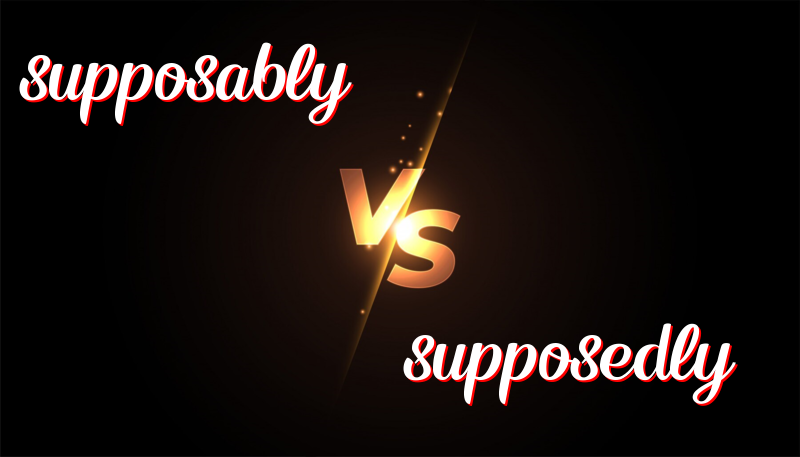Understanding the Difference Between Supposably and Supposedly
Understanding the Difference: Supposably vs. Supposedly
When it comes to the words “supposably” and “supposedly”, they may seem quite similar, but they actually have different meanings and uses in the English language.
Supposably:
If something is “supposably” true, it means that it could be assumed or imagined but might not be confirmed.
Examples:
- I suppose it’s supposably going to rain tomorrow, according to the weather forecast.
- The treasure is supposably hidden somewhere in the old mansion.
- She is supposably the next in line for the promotion.
- The mystery of the Loch Ness Monster’s existence is supposably still unsolved.
- His theory on time travel is supposably based on scientific principles.
Supposedly:
“Supposedly” is used to indicate that something is believed or assumed to be true based on available information or evidence.
Examples:
- He is supposedly the best player on the team.
- The meeting was supposedly scheduled for 2 p.m.
- The book is supposedly a bestseller, but I haven’t read it yet.
- She was supposedly seen at the mall yesterday.
- The cat is supposedly hiding under the bed.
Trick to Remember the Difference:
To remember the difference between the two words, think of “supposably” as something that could be assumed but not yet confirmed, while “supposedly” indicates a belief based on available information.
Summary:
Remember that “supposably” implies something that is assumed or imagined without confirmation, while “supposedly” suggests that something is believed to be true based on available information or evidence.

Leave a Reply
You must be logged in to post a comment.